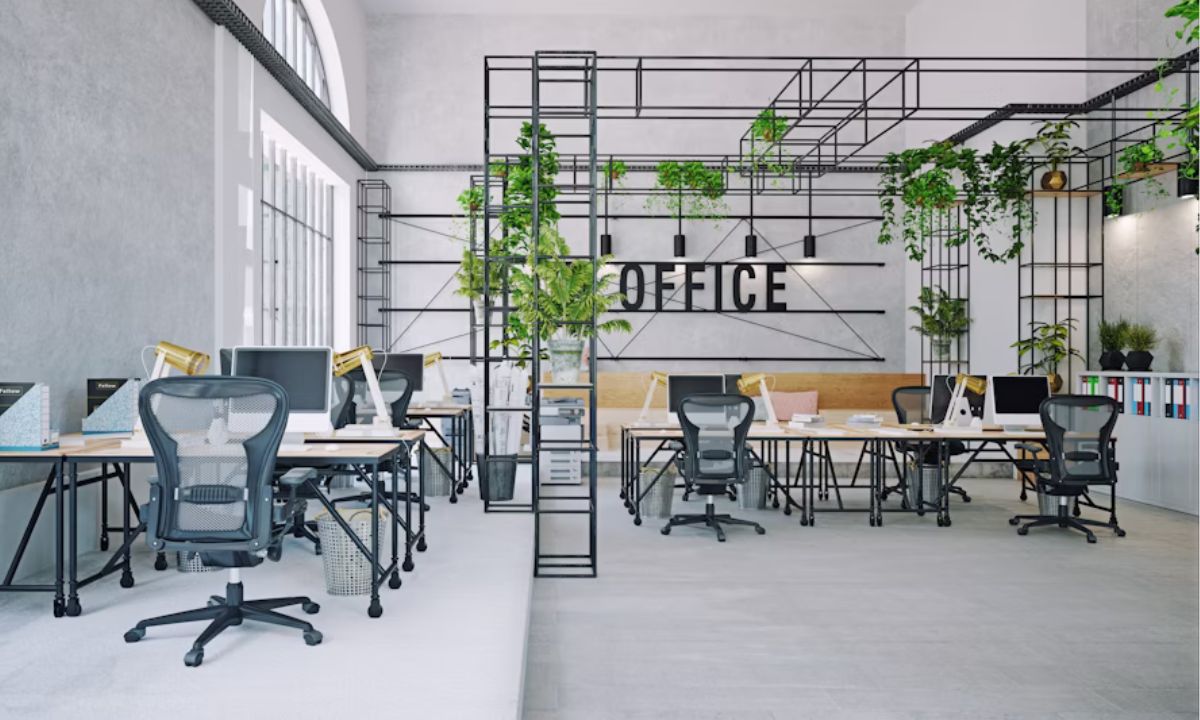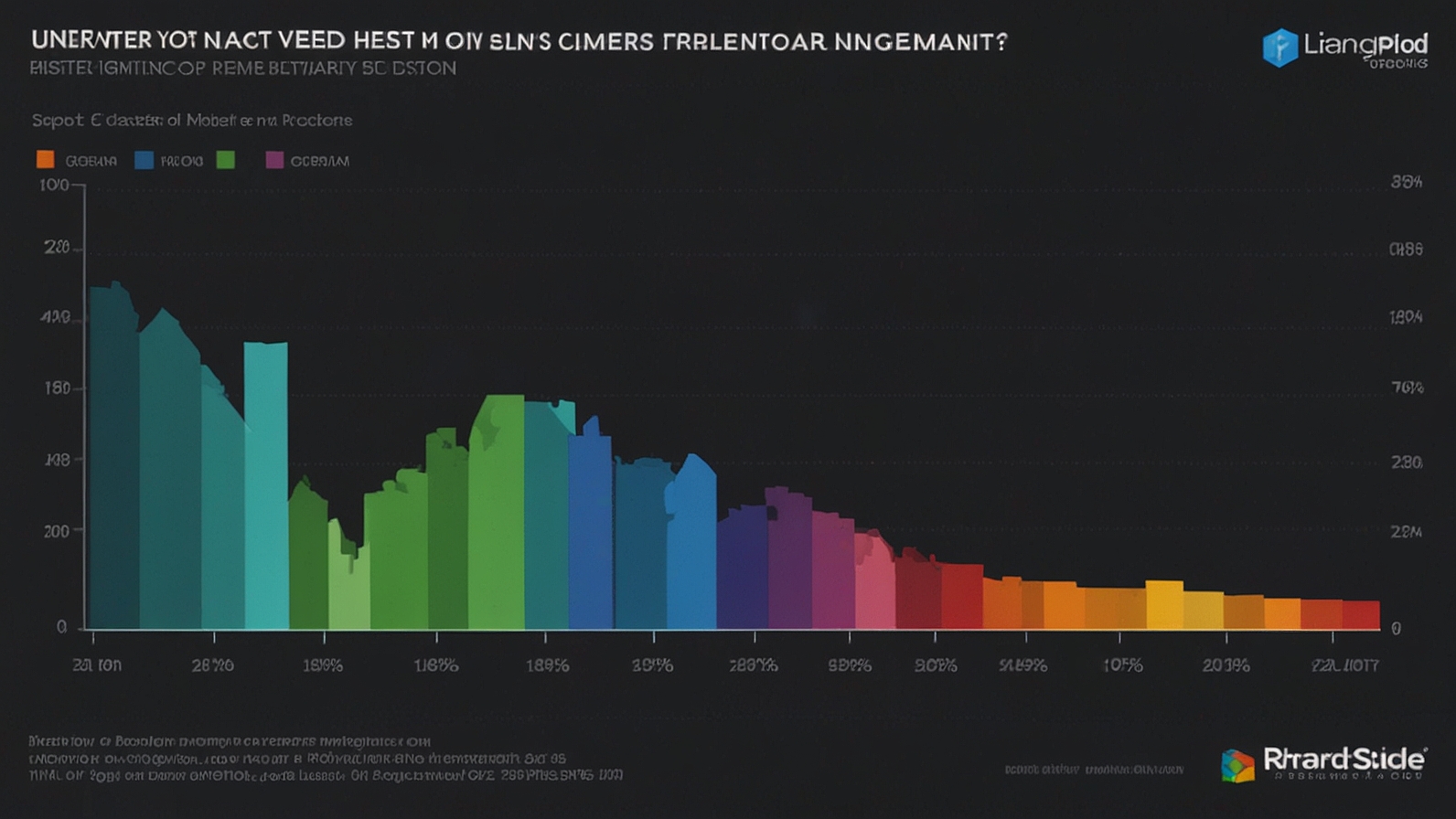Business
Why Contract Management Software is Vital for Every Modern Apartment

It can be hard to manage contracts without the right tools, like trying to find your way across a huge ocean without a good map. The process can quickly become too much to handle with all the laws, dates, and compliance problems that need to be taken care of. When this happens, contract management software is like a good first mate-it helps businesses get through the tough parts with ease and accuracy.
Having organized processes can make a huge difference for any business, no matter how big or small. Let’s look at why contract management software is important for every business, like a modern apartment.
Improved Efficiency
With tools, it’s simple to keep track of contracts. Contracts can now be read, written, and kept track of by machines instead of people. Firms save a great deal of time and cash this way.
People can focus on more important things when computers do their work. This helps the company grow and do better. Notes and tips that show up on their own can also help you remember important dates and times.
Contract software comes with deals and forms that can be sent immediately, which makes the process even easier. With these tools, people are less likely to mess up. This makes sure that each deal is legal and meets the rules.
There are laws and rules that you should follow. They will save you time and make it less likely that you will break the law again.
For better data security and quick access to important data, the software stores things safely and makes them easy to find. Because the company knows more about how contracts work, it can usually make better choices and get better results.
Enhanced Collaboration
To get things done, people need to be able to get along with each other. When contracts are managed the old way, you have to work with many places and people, which can slow things down and make things unclear. Often, this makes it hard to follow the steps, which causes people to miss important details and wait a long time for their choices.
But when you use software to handle contracts, everyone can work on the same paper at the same time. It speeds things up and lowers the chance of mistakes or misunderstandings. This software has extra features that make managing contracts even easier and safer.
These include version control, automatic alerts, and safe saves. When used together, these tools help businesses make sure that processes run more smoothly, that they follow the rules more closely, and that turnaround times are shortened.
Centralized Storage and Easy Access
All of your contracts are kept in one place by software, so it’s easy to find and store them whenever you need to. With this unified system, you don’t have to use time-consuming and error-prone manual filing systems or sort through a lot of emails to find deals. It is also possible to use buzzwords to find contracts and then sort them into groups based on the type of contract creation, the times, the parties, and the state.
With these tools, it’s very easy to find specific files very quickly. This makes the process go faster and work better.
There are also many contract management tools that can automatically remind you of important dates and make notes about them. This helps companies keep up with their business obligations and makes sure that no important dates are missed.
Compliance and Risk Management
It’s important to follow through on promises because breaking them can cost you a lot of money and get you in a lot of trouble with the law. It can be hard to keep track of many contracts by hand these days because business moves so fast. This is a good place to use software that keeps track of contracts.
This kind of software helps businesses stay on track by keeping an eye on important dates and targets. This makes sure that contracts are always ended or renewed on time.
It also lets you know about possible risks at the right time, like deals that are over, signatures that are missing, or terms that may need to be changed because of new rules. It also gives businesses research data that can help them make their deal plans and the way they run their businesses better in general.
Cost Savings
Over time, businesses save a lot of money when they buy tools to help them handle contracts. It might look like an extra cost at first. Since businesses don’t have to go to court as often, they waste less time and money and are less likely to lose money.
An awful lot of the dull, routine work that comes with managing contracts is taken care of by this software. It knows when things are due and what the law says. People can do more important things now.
Watch how well contracts are doing if you want to get better terms. This will help businesses get better deals and save them money over time.
Teams can work together better if they know more about the contract lifecycle management method. Everyone will always know what’s going on and be on the same page.
Improved Decision Making
One important benefit of using contract management software is that it helps you make better decisions. Businesses can learn a lot about contract performance and trends by storing all of their contractual data in one place and having easy access to it all. This information can then be used to guide their future plans.
Therefore, when seeking a robust solution for your contract management needs, you should consider Great Minds Software for its comprehensive features and proven track record. This software can provide the analytical tools necessary to drive informed and strategic decisions, ultimately contributing to better business outcomes.
Contract Management: A Smart Investment for a Modern Apartment
Contract management software is not just a nice-to-have in today’s fast-paced business world; it’s a must. It adds efficiency, teamwork, and compliance that have never been seen before, and it also saves a lot of money.
Whether your firm is in a high-rise office or a modern apartment, excellent contract management software will help you expand and function efficiently. To get around the complicated world of business contracts, make a plan and let contract management tools lead the way.
Does this article help you? Explore our website to find more helpful and fun stories that could help you.
Business
Avoidable errors in long-distance office moves

Long-distance office relocations require careful planning, logistics, and coordination. As with planning any event, mistakes are unavoidable, and in this case even minor errors can escalate into major problems that are difficult or costly to fix once the move is underway.
While many challenges are inherent to moving operations, several mistakes can be prevented through careful preparation and professional oversight https://bestmovescalgary.ca/long-distance-moving-services/. To better prepare for the relocation it is better to keep in mind these avoidable mistakes:
- Failing to catalog office equipment, furniture, and supplies accurately can result in lost items, missing parts, or duplicate shipments. This issue is particularly problematic when sensitive technology, specialized furniture, or essential documents are involved. Creating a complete, detailed inventory before the move allows movers and managers to track every item, reducing the risk of permanent loss or replacement costs.
- Computers, servers, and audiovisual equipment should be packed properly as they are highly sensitive to shock, temperature fluctuations, and moisture. Using inappropriate packing materials or skipping protective measures can result in hardware failure, data loss, or costly repairs. Professional movers mitigate these risks by supplying specialized crates, anti-static packaging, and cushioning techniques designed specifically for delicate office technology.
- Disorganization of critical documents also presents major challenges. Legal files, financial records, and personnel information often require secure, labeled, and traceable transport. Failing to properly classify and store these documents can result in misplaced documents, unauthorized access, or delays in reestablishing operational functionality. Advance planning, including the use of secure containers and digital tracking systems, can help prevent these issues entirely.
- Long-distance moves often require navigating unfamiliar highways, bridges, and urban streets. Trucks may encounter low clearance, narrow passages, or weight restrictions. Without pre-assessment and route optimization, vehicles may be delayed or forced to take a different route, which adds time and cost. Selecting a route based on truck dimensions and traffic patterns is a preventive measure that avoids such complications.
- Errors in furniture disassembly and reassembly are also difficult to rectify. Modular office furniture, cubicles, and conference tables require proper disassembly to prevent structural damage. Incorrect handling may result in warped panels, stripped screws, or compromised stability. Documented procedures and professional handling ensure that items arrive intact and operational at the new location quickly.
- Office relocations can disrupt workflows if insufficient time is allocated for unloading, setting up, and reconnecting technology. Misjudging these timelines can delay business operations for days. To prevent this, detailed scheduling, staged planning, and coordination with movers are required to maintain operational continuity.
Each of these mistakes is largely preventable through foresight, preparation, and the expertise of professional movers. Addressing these issues in advance ensures a smoother, safer, and more efficient long-distance office relocation.
READ ALSO: Moving Services in Melbourne: A Comprehensive Guide
Business
What Are Same-Day Settlement Loans? Everything You Need to Know

When navigating the complexities of a lawsuit, the financial burdens can quickly become overwhelming. Between mounting medical bills, essential living expenses, and the potential loss of income due to time off work, the waiting period for a settlement check can seem interminable and create immense stress. This is precisely where same-day settlement loans offer a vital solution.
If you find yourself in urgent need of rapid access to cash while your legal case is still pending, this comprehensive guide is designed to provide you with all the crucial information you need. We will delve into every aspect of these unique financial tools, from a detailed explanation of how these loans function to an exploration of their significant benefits, and what you can expect throughout the entire process. Our aim is to demystify same-day settlement loans, empowering you with the knowledge to make informed decisions during a challenging time.
What Is a Settlement Loan?
A settlement loan (also known as pre-settlement funding, lawsuit funding, or litigation financing) gives you a cash advance based on the expected value of your pending lawsuit. That means you can get money now to help cover your expenses while your case is still being resolved. Once your case settles or you win in court, you repay the loan from your settlement proceeds.
A settlement loan, often referred to as pre-settlement funding, lawsuit funding, or litigation financing, provides individuals with a crucial financial lifeline in the form of a cash advance. This advance is calculated based on the anticipated value of their pending lawsuit, offering a vital solution during what can often be a protracted and financially challenging legal process.
Advantages
The fundamental advantage of this type of funding is that it enables plaintiffs to access money immediately. This cash infusion can be used to cover a wide array of expenses that inevitably arise while a legal case is still in the process of being resolved. These expenses might include, but are not limited to, daily living costs such as rent or mortgage payments, utility bills, groceries, and transportation. Furthermore, it can help plaintiffs manage medical bills and ongoing treatment costs related to their injuries, especially if their lawsuit stems from a personal injury claim. Without such funding, many plaintiffs might feel pressured to accept a low settlement offer prematurely due to financial duress, even if a larger award is likely with further legal proceedings.
The structure of a settlement loan is designed to align with the outcome of the legal case. Once a settlement is reached, or a favorable judgment is secured in court, the loan is repaid directly from the proceeds of that settlement or award. This arrangement is non-recourse, meaning that if the plaintiff loses their case and receives no settlement or judgment, they are generally not obligated to repay the loan. This characteristic significantly reduces the financial risk for the plaintiff, as the funding company assumes the risk of the lawsuit’s outcome.
In essence, settlement loans empower plaintiffs to navigate the legal system with greater financial stability, allowing their legal teams to pursue the best possible outcome without the added pressure of immediate financial hardship. It ensures that justice is not compromised by economic constraints, providing a bridge between the initiation of a lawsuit and its ultimate resolution.
Common types of cases that may qualify include:
- Personal injury
- Wrongful death
- Slip and fall accidents
- Medical malpractice
- Product liability
Same-Day Settlement Loans vs. Traditional Loans
Unlike traditional bank loans, same-day settlement loans don’t require:
- A credit check
- Proof of income
- Employment verification
Funding decisions are based solely on the strength and estimated value of your case; not your financial history.
Best of all, approval and funding can often happen within hours, not days or weeks.
READ ALSO: Payday Loans and Your Credit Score: Separating Myth from Fact
Why Choose a Pre-Settlement Loan?
A pre-settlement loan can help you cover:
- Medical bills
- Legal fees
- Rent and utilities
- Everyday living expenses
This financial relief allows you and your attorney the time to fight for the maximum settlement, without feeling pressured to accept a low offer just to make ends meet.
Before choosing a lender, take time to compare companies, interest rates, and terms. A reputable lender will offer transparent rates and a free case evaluation before you sign anything.
How Much Does a Lawsuit Loan Cost?
There are no upfront fees or out-of-pocket costs.
The total repayment amount (including interest) is clearly outlined in a non-binding agreement, and payment is only due if you win your case.
What Happens If You Lose Your Case?
If you lose your lawsuit, you generally owe nothing.
That’s because settlement loans are non-recourse, meaning the lender assumes the risk. You only repay if you receive compensation.
Other Benefits of Same-Day Settlement Loans
- No Credit Required: Approval is based on your case, not your credit score.
- Fast Access to Cash: Many applicants receive funding within 24 hours.
- Negotiation Power: You can take the time you need to negotiate a fair settlement — without financial stress dictating your decisions.
How Do Settlement Loans Compare to Payday Loans?
While both options provide quick cash, payday loans often come with extremely high interest rates (sometimes over 400–500% APR). They also require proof of income and must be repaid from your next paycheck; often trapping borrowers in a cycle of debt.
In contrast, lawsuit loans are tied to your case’s outcome, not your income. You don’t repay until you win.
Secured vs. Unsecured Loans
- Secured loans (like auto or home loans) use collateral such as your car or property, which the lender can seize if you fail to pay.
- Unsecured loans have no collateral but often carry higher interest rates, and may involve hidden fees.
Settlement loans are a unique form of unsecured financing that’s risk-free for the borrower because repayment depends solely on your legal win.
Tips for a Successful Lawsuit
- Hire an experienced attorney who specializes in your case type.
- Be patient. Legal cases often take longer than expected.
- Cooperate with your attorney on discovery and document requests.
- Attend settlement conferences to understand your case’s potential value.
- Prepare for depositions and always present yourself professionally in court.
Get Fast Legal Funding Today
If you’re struggling to pay bills while waiting for your settlement, same-day settlement loans can give you the breathing room you need to stay financially stable and focused on your recovery.
Contact us today to learn more about our quick, risk-free settlement funding options. Get the cash you need, when you need it most.
YOU MAY ALSO LIKE: Instant Loans vs. Traditional Loans: Which One Is Right for You?
Business
Unlock Engagement: How Video&a Transforms Business Content

What if you could turn a passive viewer into an active participant with the click of a button? Imagine a potential customer watching your product demo, and right at the moment they wonder about pricing, a subtle prompt appears: “Curious about our plans? Ask now!” They type their question and get an instant, clear answer from the video itself, without ever hitting pause. This isn’t a glimpse into the distant future of marketing; it’s the powerful reality of Video&a, a revolutionary approach that’s redefining how businesses communicate.
Gone are the days of one-way, linear video content. Today’s audiences crave interaction and personalization. They don’t just want to be talked at; they want a conversation. This is where Video&a shines—a dynamic, AI-assisted strategy that embeds interactive Q&A directly into the video experience. It’s like giving every single viewer their own personal guide, making your content more discoverable, memorable, and effective across every touchpoint of your business.
What Exactly Is Video&a? Breaking Down the Buzzword
Let’s demystify this term. At its core, Video&a is a content methodology that integrates interactive question-and-answer functionality within a video player. It uses artificial intelligence to make this process seamless and scalable.
Think of it like this: a standard video is a monologue. It’s a speaker delivering a message to a silent audience. Video&a, however, is a dialogue. It’s a two-way street where the viewer can steer the conversation, digging deeper into the topics that matter most to them, right when their curiosity is piqued.
How It Works in Practice:
A company launches a new software feature and creates a tutorial video. Using a Video&a platform, they can:
- Pre-load common questions: The AI is fed a list of FAQs and their answers beforehand.
- Enable live interaction: Viewers can type questions in a sidebar as they watch.
- Receive instant AI-powered answers: The AI scans the query and instantly either pulls a timestamp from the video that answers it, displays a text answer, or even generates a short spoken response using text-to-speech.
- Create a living FAQ: The system learns from new questions, constantly improving its knowledge base for future viewers.
This transforms a static video into an evergreen, interactive resource that becomes more valuable over time.
Why Your Business Needs to Embrace Interactive Video Now
The data doesn’t lie. Interactive content consistently outperforms passive content. But why is Video&a such a game-changer? The benefits spread across marketing, sales, support, and training.
Skyrocket Engagement and Dwell Time
Search engines, especially Google and YouTube, love content that keeps users engaged. The longer a visitor stays on your page (dwell time), the more favorably algorithms rank your content. Video&a is incredibly effective at this. Instead of clicking away after 30 seconds, viewers are compelled to stay, ask questions, and explore the content more deeply. This sends powerful positive signals to search engines, boosting your organic discoverability.
Dramatically Improve Learning and Retention
For e-learning and internal training, Video&a is a powerhouse. The Ebbinghaus forgetting curve shows we forget most of what we learn within days. Interactive video combats this by transforming learners from passive recipients into active participants. This process of inquiry and immediate feedback reinforces knowledge, dramatically improving information retention and application. It’s the difference between listening to a lecture and having a one-on-one tutoring session.
Scale Personalized Customer Support
Customer support teams are often overwhelmed with repetitive queries. Imagine deflecting a significant portion of these tickets without lifting a finger. A well-built Video&a system integrated into your help center can do just that. A viewer watching a setup guide can ask, “What do I do if the blue light is blinking?” and get an immediate, accurate answer. This provides 24/7 support, reduces ticket volume, and empowers customers to find solutions faster.
Generate Rich Data and Consumer Insights
Every question asked is a priceless data point. Video&a platforms provide analytics that reveal exactly what your audience is curious about, what they’re confused by, and what information is missing from your content. This is pure gold for your product, marketing, and content teams, allowing you to refine your messaging, develop new content, and ultimately build better products that serve your customers’ real needs.
Putting Video&a to Work: Real-World Applications
This strategy isn’t just theoretical; it’s delivering real results for forward-thinking businesses right now.
Marketing & Sales: The Interactive Product Demo
Startup “SaaSify” integrated Video&a into their main product demo video. Instead of a generic tour, viewers could ask specific questions like, “Does this integrate with Slack?” or “Can I see the reporting dashboard?” The AI provided concise answers with clips from other videos that showed exactly that. The result? A 40% increase in demo-to-trial conversion率和 and a significant drop in “basic question” sales calls, allowing their reps to focus on high-value prospects.
E-Learning: The Never-Tiring Teaching Assistant
An online course platform, “LearnSphere,” used Video&a within their lesson videos. Students could ask for clarifications on complex topics without interrupting the flow of the lesson. The platform found that courses with interactive Q&A saw completion rates jump by 60% and final exam scores improve by an average of 25%. The instructors also used the question log to identify tricky concepts and create new supplemental mini-lessons.
Customer Support: The 24/7 Answer Engine
“GadgetGenius,” a consumer electronics company, embedded Video&a into their troubleshooting video library. Customers could describe their issue in their own words and be guided to the exact moment in a video that solved it. This led to a 35% reduction in support tickets related to common setup issues and a marked improvement in customer satisfaction scores, as users appreciated the instant, helpful support.
Your Roadmap to Implementing Video&a (Without the Overwhelm)
Getting started with this strategy is more accessible than you might think. You don’t need a Hollywood production studio or a team of AI engineers.
1. Start with Your Most Valuable Content
Audit your existing video library. Which video answers the most common questions? Which one has the highest traffic? Which one generates the most support tickets? Your best-performing “hero” content or your most-viewed tutorial is the perfect candidate for a Video&a makeover. Repurposing existing content is the most efficient way to start.
2. Choose the Right Tool for Your Needs
The market for interactive video tools is growing rapidly. Look for platforms that offer:
- Easy integration with your website (often just a snippet of code).
- AI capabilities that can handle natural language questions.
- Strong analytics to track questions, engagement, and performance.
- A user-friendly interface for you to input questions and answers.
3. Build Your Knowledge Base
This is the most crucial step. Work with your sales, support, and product teams to compile a list of every Frequently Asked Question they receive. Write clear, concise answers for each one. For longer videos, you can even timestamp specific sections that answer common questions. The richer your initial knowledge base, the smarter your Video&a experience will be from day one.
4. Promote and Iterate
Once your first interactive video is live, promote it! Let your audience know they can now “ask questions directly within the video.” Monitor the questions that come in. You’ll quickly see what’s working and what’s missing. Use these insights to continually update and expand your Q&A database, making the system smarter and more effective every week.
3 Actionable Tips to Try Today
Ready to dip your toes in the water? Here’s how to start immediately.
- Audit One Key Video: Pick one high-value tutorial or demo video. List the top 5 questions a viewer might have at specific timestamps.
- Script Simple Answers: Write friendly, one-sentence answers to those questions. Avoid jargon.
- Explore One Tool: Spend 30 minutes researching a single Video&a platform (many offer free trials or demos). See how easy it is to upload a video and input your Q&As.
The Future of Content is a Conversation
Video&a represents a fundamental shift from broadcast to conversation. It’s a strategy that respects the viewer’s intelligence and curiosity, providing value on their terms. By meeting your audience where they are and answering their questions in the moment, you build trust, authority, and lasting engagement. In a crowded digital world, that’s the ultimate competitive advantage.
The question is no longer if interactive video is valuable, but how quickly you can implement it to start reaping the rewards. What’s the first question you’d want your customers to be able to ask?
Share your thoughts and ideas in the comments below!
You May Also Read: The Silent Shift: How Lillienu is Rewriting the Rules of Business Operations
FAQs
Q: Is Video&a expensive and technically difficult to implement?
A: Not necessarily! Many modern SaaS platforms are designed for marketers and content creators, not developers. They often work on a subscription model and can be integrated with a simple copy-paste of code, similar to adding a YouTube video to your site.
Q: Will AI answers feel robotic and turn viewers off?
A: This is a common concern. The key is in the setup. You train the AI with your own brand’s voice and tone. By writing answers that sound human and helpful—and using features that link to specific video clips—the experience feels incredibly responsive and personal, not robotic.
Q: Can Video&a work with live video streams?
A: Absolutely. Many platforms offer live stream integration, allowing moderators to answer questions in real-time during a webcast or live event. This combines the power of live engagement with the organized structure of a Q&A.
Q: What kind of videos work best for this approach?
A: Tutorials, how-to guides, product demos, training modules, and recorded webinars are all perfect candidates. Any video designed to explain or teach something is ideal for an interactive Q&A layer.
Q: How does this affect video SEO?
A: It significantly boosts it. The increased dwell time, lower bounce rates, and user engagement are all strong positive ranking factors. Furthermore, the text-based Q&A creates a rich layer of keyword-rich content that search engines can crawl, making your video discoverable for even more questions.
-

 Education1 year ago
Education1 year agoMastering Excel: Your Comprehensive Guide To Spreadsheets And Data Analysis
-

 Tech1 year ago
Tech1 year agoHow To Choose The Best Forex Trading Broker?
-

 Business2 years ago
Business2 years agoExploring the Rental Market: Properties for Rent in Malta
-

 Blog1 year ago
Blog1 year agoArab MMA Fighters Shine Bright: Meet the Champions of PFL MENA
-

 Travel1 year ago
Travel1 year agoExperience the Best Desert Safari Dubai Offers!
-

 How-To Guides2 years ago
How-To Guides2 years agoComprehensive Guide to Cockwarming: Enhancing Intimacy and Connection
-

 Home Improvement2 years ago
Home Improvement2 years agoEco-Friendly Round Rug Options for Sustainable Living in NZ
-

 Fashion2 years ago
Fashion2 years agoBlack Magic: The Elegance and Sophistication of Ultimate Homecoming Dresses in Black


